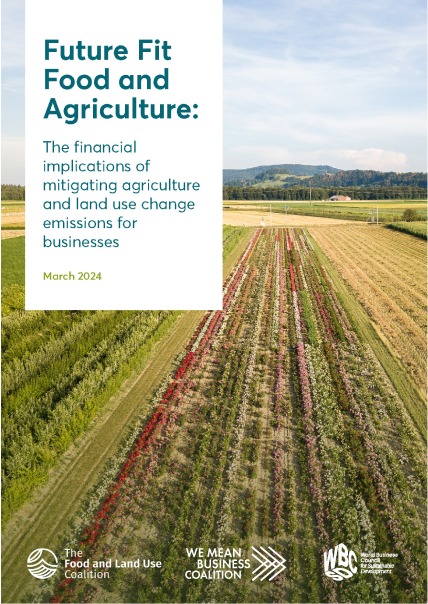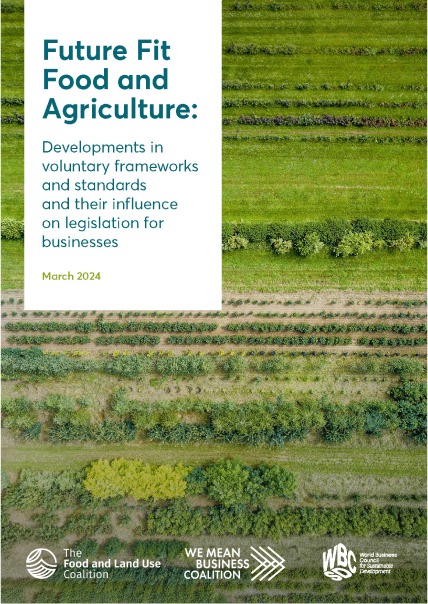Co-hosted by the Food and Land Use Coalition (FOLU), World Business Council for Sustainable Development (WBCSD), and We Mean Business Coalition, the event will delve into key insights from a recently published report series: ‘Future Fit Food and Agriculture’ revealing that US $205 billion per year is needed from the food sector to mitigate half of global food system emissions.
- Morgan Gillespy, Executive Director, Food and Land Use Coalition
- Alex Andreoli, Associate, Sytemiq
- Emeline Fellus - Senior Director, Agriculture and Food & Member of the WBCSD Extended Leadership Group.
- Owen Bethell - Environmental Impact Lead Global Public Affairs, Nestle
- Milindi Sibomana- Chief Agriculture Officer at One Acre Fund Rwanda
- Luke Pritchard- Deputy Director, Nature Based Solutions, We Mean Business Coalition
Resources
- Investment from the food sector of approximately US $205 billion per year between 2025 and 2030 could mitigate up to 9 GtCO2e annually by 2030.
- While significant, these costs represent less than 2% of total projected food sector revenues and come with other benefits including access to new and growing markets, some on farm savings and improved supply chain resilience.
- This report highlights that the burden of mitigation varies depending on where actors sit along the value chain. A critical challenge is that the costs are currently projected to land most heavily on farmers, who are the least able to pay.
- Overcoming this inequity requires companies to reassess how they partner with actors in the value chain, particularly farmers, and how they engage with policymakers to accelerate action.
FOLU (2024) Developments in voluntary frameworks and standards and their influence on legislation for businesses #30 p + Key Messages #2 p
- Businesses setting and implementing ambitious climate and nature strategies today will be better prepared for future sustainability regulation, facing fewer compliance risks and experiencing less disruption in their supply chains.
- Ambitious companies can not only leverage established and emerging voluntary standards to get ahead of the game, but they can and should also seize the opportunity to advocate for harmonized standards and regulation, which will accelerate the food sector’s transition to a sustainable future.




No comments:
Post a Comment